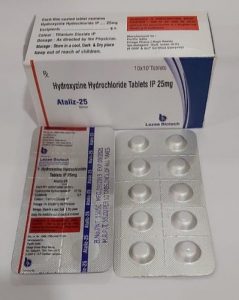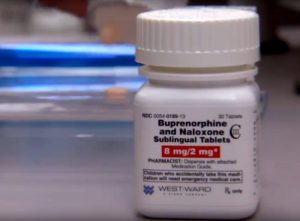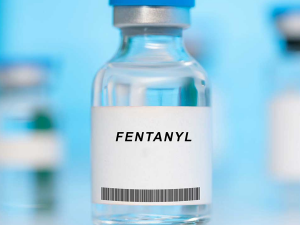As an opiate drug, codeine can give the user a pleasant euphoric feeling which can develop into a psychological dependence, compulsive use, and eventually an addiction. Once you become dependent on codeine, you might get withdrawal symptoms if you try to stop using it or reduce your intake.
It can be hard to fight off withdrawal symptoms by yourself and dangerous in some situations. Looking for codeine addiction treatment is the best way to detox safely and comfortably as you start your recovery journey.
Codeine addiction treatment usually includes detox, outpatient, and inpatient programs. The rehab process usually starts with the gradual tapering of one’s codeine intake until they are successfully off the drug. Most outpatient and inpatient rehab programs provide medical detox services for recovering codeine users.
Treating Codeine Withdrawal
 Medically supervised detox involves a doctor’s guidance when tapering off codeine to help prevent severe withdrawal symptoms and complications. A medical professional will recommend tapering off the medication slowly instead of stopping suddenly. This gradual reduction of the dosage intake enables the user’s body to get used to having less codeine in the body until it does not need the drug to function regularly.
Medically supervised detox involves a doctor’s guidance when tapering off codeine to help prevent severe withdrawal symptoms and complications. A medical professional will recommend tapering off the medication slowly instead of stopping suddenly. This gradual reduction of the dosage intake enables the user’s body to get used to having less codeine in the body until it does not need the drug to function regularly.
A qualified professional with experience in codeine addiction treatment can refer you to an appropriate rehab facility or guide you through the process. They can also suggest counseling and behavioral therapy to help prevent relapse. Your physician can also prescribe certain drugs based on the intensity of your withdrawal symptoms.
Even though codeine withdrawal symptoms are uncomfortable, they are not potentially dangerous. However, the detox process can render some individuals so emotionally distraught that this can hamper their judgment, causing them to engage in risky behavior. This is why it is always advisable to talk to an addiction psychiatrist or medical professional before trying to quit.
Medications for Codeine Withdrawal
Mild Symptoms
When a recovering codeine user experiences mild withdrawal symptoms, their doctor can prescribe non-narcotic drugs to help ease them. These medicines can include the following:
 Hydroxyzine (Atarax, Vistaril) can help to minimize mild anxiety and nausea.
Hydroxyzine (Atarax, Vistaril) can help to minimize mild anxiety and nausea.- Imodium or Loperamide can help with diarrhea.
- Painkillers such as Ibuprofen (Advil, Motrin) and Acetaminophen or Tylenol can help the user minimize any mild pain they’re experiencing.
Moderate Symptoms
When the patient experiences moderate symptoms during codeine withdrawal, their healthcare provider can recommend stronger drugs. Clonidine, also known as Kapvay or Catapres, can be taken to address high blood pressure and decrease anxiety.
It can also help treat agitation, a runny nose, muscle aches, cramps, and sweating. A doctor can also recommend a long-acting benzodiazepine medication like Diazepam or Valium to help the patient sleep or reduce muscle cramps.
Intense Withdrawal Symptoms
Individuals who experience severe withdrawal can use several options based on a doctor’s recommendation. The doctor can switch out the codeine for another opiate medication in some cases.
They can also be prescribed either of three drugs that are usually used to treat severe codeine withdrawal symptoms and opiate addiction.
 Buprenorphine; this medication produces weak opiate-like effects, including feelings of euphoria. Buprenorphine can decrease the likelihood of dependence, misuse, and codeine side effects with time.
Buprenorphine; this medication produces weak opiate-like effects, including feelings of euphoria. Buprenorphine can decrease the likelihood of dependence, misuse, and codeine side effects with time.- Methadone; this drug is highly effective in preventing codeine cravings and withdrawal symptoms. It also helps body function to go back to working normally without codeine, which makes the withdrawal process a bit easier.
- Naltrexone works by blocking opioid action within the brain, which, in turn, eliminates the satisfying effects of the drug. This plays a significant role in preventing misuse and relapse. On the other hand, this medication might not prevent drug cravings caused by addiction.
Opiate substitutes such as Suboxone (a combination of Naloxone and Buprenorphine) or Methadone can be taken as an alternative to codeine when tapering. These drugs can help to reduce drug cravings and withdrawal symptoms effectively. However, if they are not used properly, they can be addictive. Thus, these drugs must always be used under medical supervision.
Antidepressants can also be prescribed to decrease irritability and sleep disturbances.
Recovering users can take a combination of these drugs according to a doctor’s recommendation after codeine withdrawal to help sustain their sobriety. After tapering off codeine, some individuals, particularly those suffering from a severe addiction, can continue to use these medications for a long time.
Long-Term Codeine Addiction Treatment
When a codeine user’s dependence becomes an addiction, they can be classified as having a substance use disorder. Addiction is a complicated disease with both psychological and physical contributing factors.
Addressing the withdrawal symptoms of detox is only one part of codeine addiction treatment. Other essential elements of the treatment include:
- Treating underlying health conditions like depression or chronic pain
- Helping the recovering user understand the underlying causes of their addiction
- Providing support to the patient so they can resist cravings
Other long-term treatment approaches used in codeine addiction treatment include:
- Medications to improve the individual’s mental health
- Treatment approaches for chronic pain include exercise, surgery, or physical therapy
- Psychological therapy
- Support groups
- Lifestyle modifications such as replacing harmful addictive behaviors with healthy, beneficial pursuits
Overall, an effective withdrawal management program can help recovering users get through the detox stage without relapsing or severe complications. However, this is not enough to sustain a successful recovery from codeine addiction.
The foundation of a recovery program for codeine addiction treatment is therapy. Additionally, other interventions such as addiction education and participation in support groups may be necessary and beneficial depending on the person’s specific situation.
People who only go through medical detox without furthering their treatment or going through a long-term treatment program typically end up relapsing most of the time. To improve the success rate for rehabilitation from codeine addiction, you will need to go through a formal recovery program.



